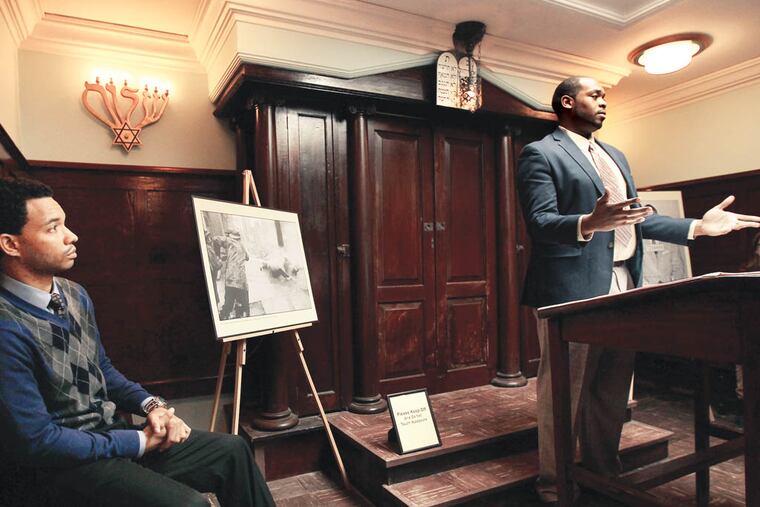King's 'Letter from Birmingham Jail' contrasts sharply with more-famous 'Dream' speech
The civil rights leaders jailhouse despair highlights MLK Day at Eastern State Penitentiary.

ONLY FOUR months before delivering his "I Have A Dream" speech at the 1963 March on Washington for Jobs and Freedom, the Rev. Dr. Martin Luther King Jr. sat in an Alabama prison cell and wrote his grim, despairing "Letter from Birmingham Jail."
Eastern State Penitentiary, on Fairmount Avenue near 22nd Street, commemorates King's life today, as it did all weekend, by reading and discussing that gut-wrenching letter at 11:30 a.m., 1:30 p.m. and 3:30 p.m. All sessions are free and open to the public.
"Dr. King is naturally seen as a martyr and we've frozen him in 1963 when he made his 'Dream' speech," said Sam Davis, a Temple University doctoral student who discusses the letter with the public while actor Dax Richardson reads from it inside the prison's circa-1924 synagogue.
"But if we just freeze Dr. King there and don't take into account his personal struggles that are clear in this letter, struggles that continued until he was assassinated five years later, we miss the point of his work," Davis said.
"He was fighting for the hearts and minds of people who ended up throwing rocks at his demonstrators in Chicago. He didn't expect that kind of widespread hatred."
King's frustrations with white pastors in Alabama and with white moderates everywhere, who rejected him as an agitator, occupied his mind as powerfully as his dream of a racially harmonious future, Davis said.
In sharp contrast to his "Dream" speech, King detailed "my shattered dreams" in his jailhouse letter.
"Dr. King's speech at the March on Washington appealed to people in the uplifting spirit of hope and keeping dreams alive," said Lynn Canty of Doylestown, who visited Eastern State Penitentiary yesterday with her husband, Eric, and children Loryn, 7, Devin, 9, and Myles, 10.
"But 'Letter from Birmingham Jail' is more intellectual, more about the heart of the matter rather than a 'can't we just get along?' approach," she said.
"Dr. King felt that after slavery was abolished, African-Americans were still seen as less than human, and that idea became the status quo," Canty said.
"The Ku Klux Klan was very extreme, but Dr. King also saw moderates as allowing the status quo to continue, as being passive because they just wanted to keep the peace.
"This letter is very smart because Dr. King shows that biblically and morally, there was no way moderates and clergy could continue to do that."
Davis said the letter shows that King was "disappointed and heartbroken that, of all people not on his side, it would be clergy. He felt that segregation still existed because the people he thought would act did not act."
That passivity, said actor Richardson, came from the belief that time alone would end racial inequality - which King knew wasn't true.
"I remember being a kid and hearing my parents tell me, 'It will take time,' " Richardson said. "Now I'm a parent, and I hear myself tell my kids the same thing. It's what you say to kids to keep them docile. But time is not enough. Dr. King knew you have to do something."
Richardson read from King's letter: "For years now, I have heard the word 'Wait!' It rings in the ear of every Negro with piercing familiarity. This 'Wait' has almost always meant 'Never.' "